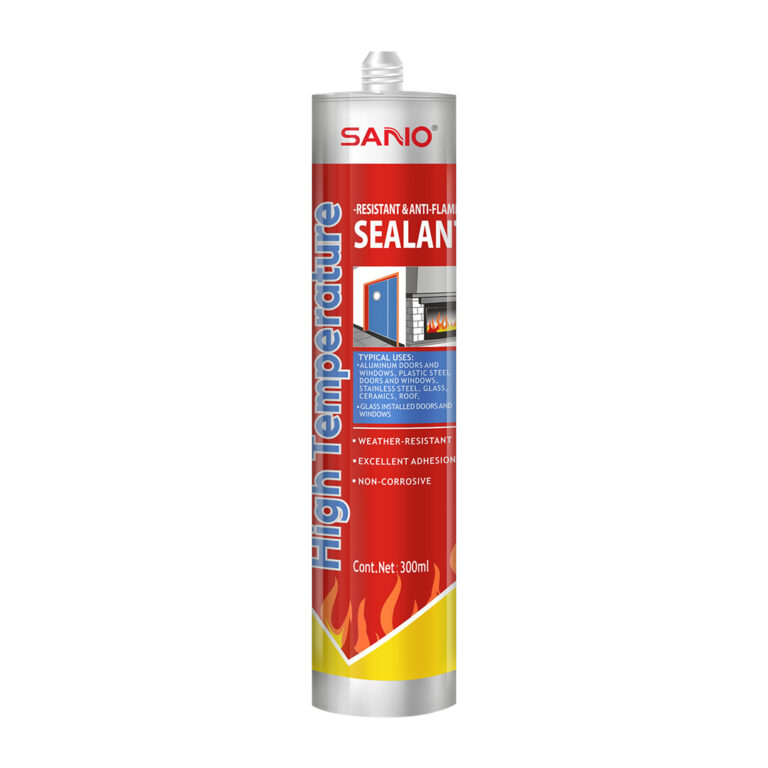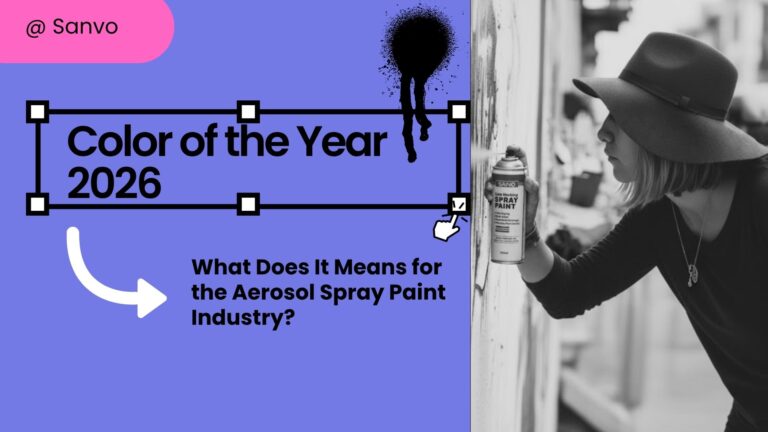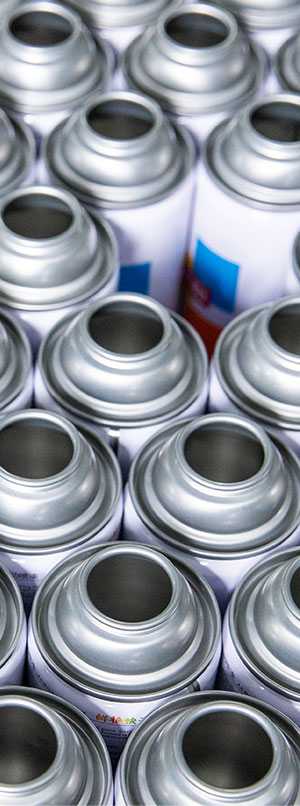The short answer: It depends entirely on where the dent is and what it looks like.
An aerosol can is not a passive container like a food can; it is an active, pressurized system. A dent isn’t just a cosmetic flaw—it’s a potential failure point that can lead to a sudden, violent release of pressure or even an explosion.
Before you use a dented spray can, use this safety checklist to assess the risk.
The Dented Can Safety Checklist: How Severe the Dent Is?
The short answer: It depends entirely on where the dent is and what it looks like.
An aerosol can is not a passive container like a food can; it is an active, pressurized system. A dent isn’t just a cosmetic flaw—it’s a potential failure point that can lead to a sudden, violent release of pressure or even an explosion.
Before you use a dented spray can, use this safety checklist to assess the risk.
| Observation | Location of Damage | Risk Level | Recommended Action |
|---|---|---|---|
|
Minor, smooth dent |
Main body of the can | Low | Generally safe to use. Handle with care and monitor for any changes. Store in a cool, safe place. |
|
Sharp crease or deep dent |
Main body of the can | Medium | Use with extreme caution. Do not store in high-heat areas (e.g., vehicles). Prioritize using and emptying the can soon. |
|
Any dent, crease, or damage |
Top or bottom seam/rim | High | Do not use. The can's integrity is critically compromised. Proceed to safe disposal protocols. |
|
Visible rust or corrosion |
Anywhere, especially on seams | High | Do not use. Corrosion weakens the metal structure. Proceed to safe disposal protocols. |
|
Bulging or swelling |
Anywhere on the can | Extreme | Do not handle. Isolate the can in a cool, safe outdoor location away from people and ignition sources. Contact your local hazardous waste facility for emergency guidance. |
Why is a Dented Aerosol Can So Dangerous?
The risk with a dented aerosol can is physical.
Constant Pressure: The contents, like aerosol can paint, are mixed with a liquefied gas propellant (like butane or propane). This system is designed to maintain a near-constant high pressure (often 2 to 8 times normal atmospheric pressure) as long as any liquid propellant is left.
A Half-Empty Can is Still a Full-Pressure Can: Unlike a compressed gas can, a can with liquefied propellant remains a significant pressure hazard until it is completely empty.
Weak Points: The seams (top, bottom, and side) are the can’s weakest points. A dent on a seam or a sharp crease creates a stress point. If that can is then exposed to heat (like in a car), the internal pressure will rise and can cause a violent rupture at that weak point.
My Aerosol Can Sprayer is Clogged. How to Fix Aerosol Spray Can?
A hissing or leaking can is an active emergency. It is releasing pressurized, flammable, and/or toxic contents. Follow this emergency protocol immediately:
How to Prevent Nozzle Clogs
After using products like paint, turn the can upside down and spray for a few seconds until only clear propellant is released. This clears the nozzle.
Safe Salvage Techniques
- Soak the Nozzle: Carefully remove the plastic actuator button. Submerge it in a compatible solvent (e.g., mineral spirits or paint thinner for spray paints).
- Mechanical Cleaning: Use a very fine wire (like from a twist-tie) or a small pin to gently clear the openings in the plastic nozzle.
- Nozzle Swap: Replace the clogged nozzle with a clean one from a can of a similar product that has been completely emptied.
Warning: If the plastic valve stem that protrudes from the can itself is snapped off, the can is unusable. Do not attempt to fix it. The product cannot be safely salvaged, and the can must be taken for hazardous waste disposal.
Help! My Can is Hissing and has Spray Repair Leaks!
Any spray can that is compromised, damaged, or not verifiably empty must be treated as hazardous waste.
A can is only considered “empty” by safety standards when absolutely nothing—no product and no propellant hiss—is discharged when the actuator is pressed.
Leaking Can: Emergency Steps
- DO NOT PANIC. DO NOT PLUG THE LEAK.
- VENTILATE THE AREA: Immediately open all doors and windows to create cross-ventilation. This is critical to prevent flammable fumes from building to a dangerous concentration.
- ELIMINATE ALL IGNITION SOURCES: This is a non-negotiable priority. Extinguish open flames, stop smoking, and do not operate any electrical switches, appliances, or tools, as they can create a spark.
- RELOCATE (ONLY IF SAFE): Wearing protective gloves and eye protection , carefully carry the can outdoors to a secure, well-ventilated, and isolated location. Place it on the ground away from people, vehicles, and ignition sources.
- ISOLATE: Place the can upright in a larger, open-top container (like a sturdy plastic bucket) to contain any liquid. Allow it to depressurize on its own.
- DO NOT USE WATER: Never submerge a leaking can. Warm water can increase the internal pressure and worsen the leak or cause a rupture.
How Do I Safely Dispose of a Dented or Full Aerosol Can?
Any spray can that is compromised, damaged, or not verifiably empty must be treated as hazardous waste.
A can is only considered “empty” by safety standards when absolutely nothing—no product and no propellant hiss—is discharged when the actuator is pressed.
The Golden Rule
Take any compromised or non-empty aerosol cans to a designated Household Hazardous Waste (HHW) collection facility.
You can find your local facility by searching online for “household hazardous waste near me” or by visiting your city or county’s solid waste authority website.



